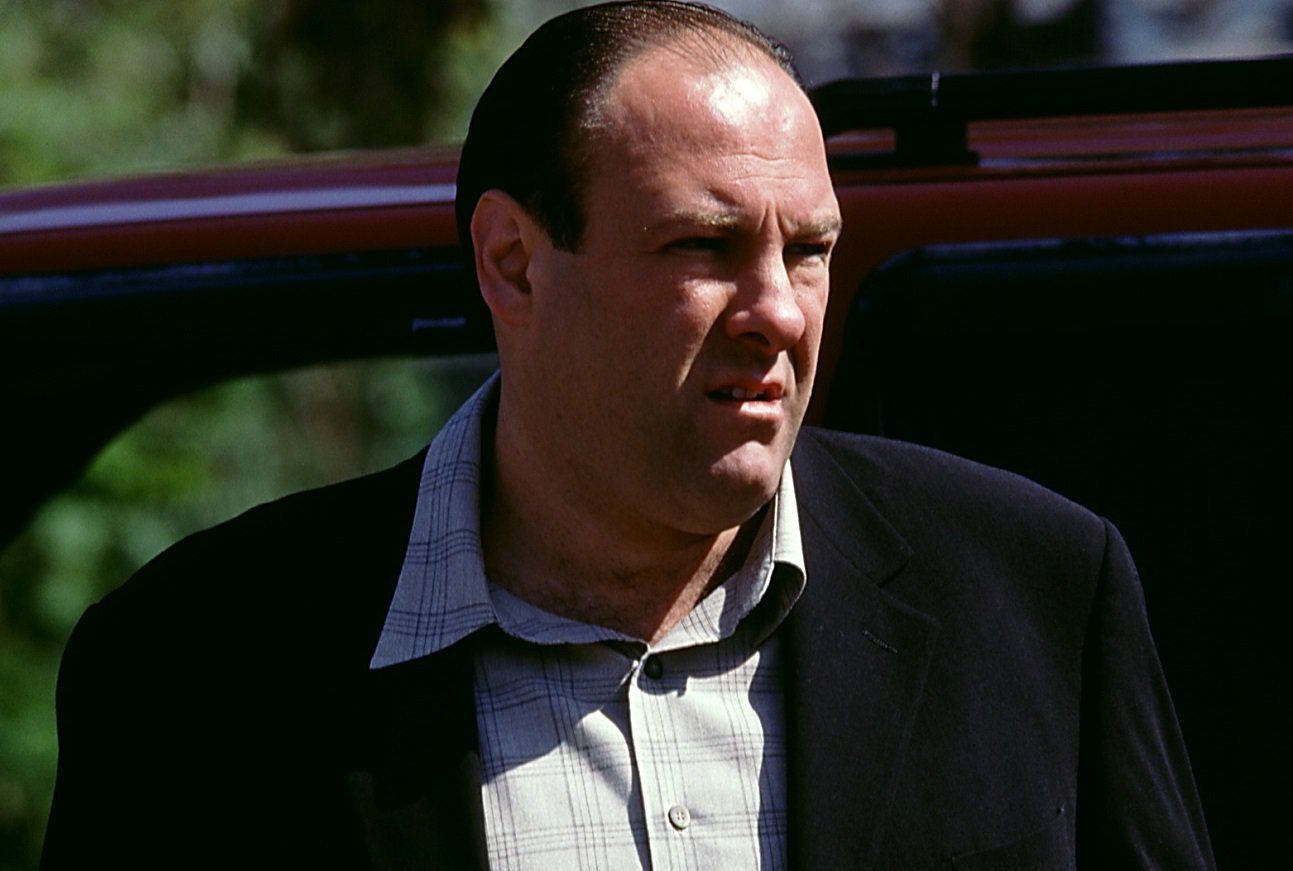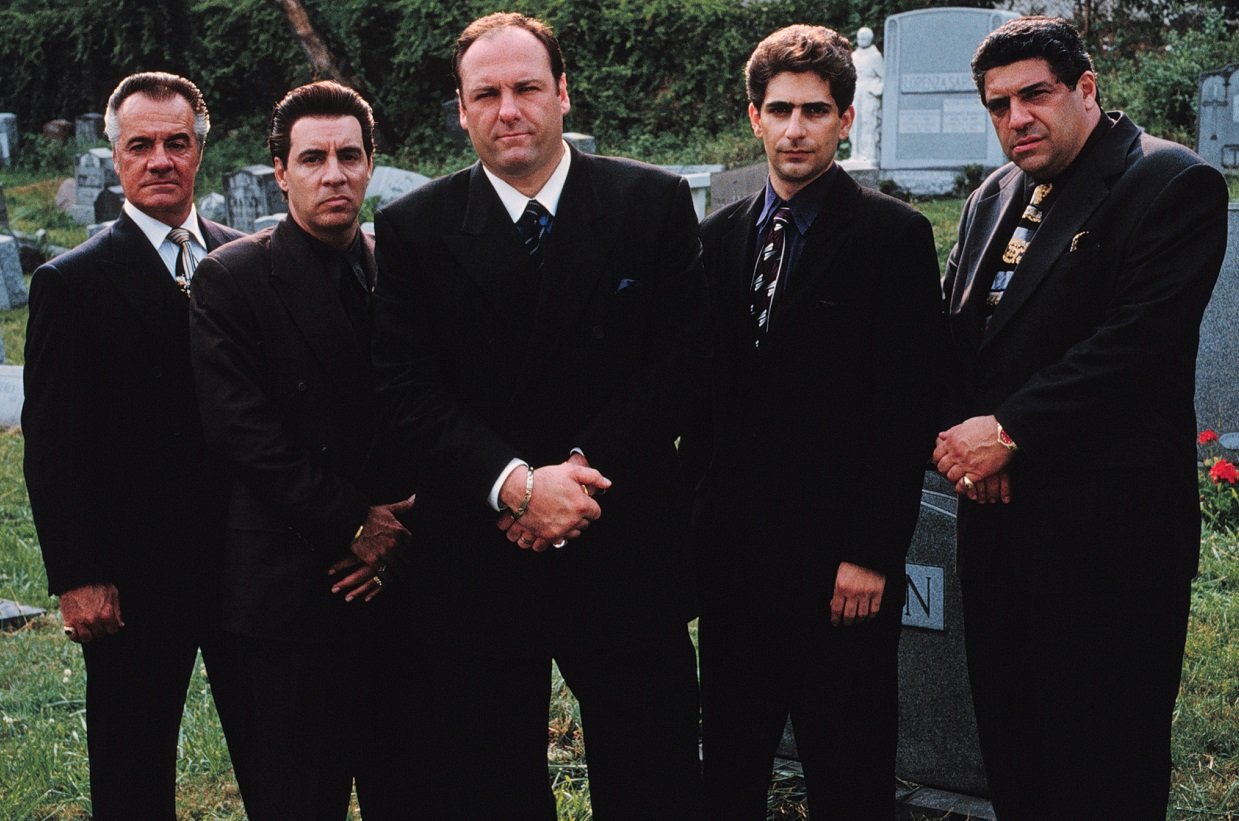‘The Sopranos’: If Tony Soprano Got Whacked at the End, Who Ordered the Hit?
The Sopranos abruptly cut to black at the end of the series finale. You might know this fact even if you haven’t watched the show — that’s just how maddening it was for many Sopranos fans. Basically, those fans wanted to definitively know if Tony Soprano (James Gandolfini) died right there in Holsten’s.
The way Sopranos creator David Chase saw it, that wasn’t the big question. “If he didn’t die that night, he’s going to die very soon,” Chase told USA Today in 2012. “There are a number of minutes in life […] and [then] they’re gone. And you don’t know when it’s coming. That’s all I wanted to say.”
To put it another way: Chase was saying that Tony didn’t reform and die peacefully in bed decades later. With that out of the way, we can focus on a more interesting question: Who ordered the hit on Tony Soprano when his time finally came?
A New York mobster would most likely order Tony Soprano’s murder at the conclusion of ‘The Sopranos’

At the start of “Made in America,” the Sopranos series finale, Tony and his crew are still at the safe house, where they’d “gone to the mattresses.” The hunt for New York boss Phil Leotardo (Frank Vincent) continues. But Tony needs help, and he starts getting it in a sit-down with Leotardo’s captain, Butch DiConcini (Greg Antonacci).
Butchie had antagonized Tony in the past, but at this point in time he agrees his boss Phil went too far. Though he won’t give up Phil’s location, Butchie says his crew won’t retaliate if Tony whacks Phil. Later, Tony gets Phil’s location from FBI agent Harris (Matt Servitto). And he has Phil killed.
Phil’s murder ends the war, which had been disastrous for mob business in New York and New Jersey. So at that point, you have to ask: Why would Tony Soprano become a target for a hit right then? In short, the New York families would have been fed up with Tony’s behavior to that point.
Tony had antagonized the Lupertazzi family on several occasions in the past; he’d defended the indefensible (Ralph Cifaretto) and backed another banished capo (Vito Spatafore); and, last but not least, he began working with the FBI while another member of his crew became a full-fledged informant. So New York had plenty of reasons to kill Tony.
Theories about Patsy Parisi ordering the hit also deserves a mention

When discussing the final scene of The Sopranos, many people rightly focus on would-be assassins in Holsten’s. Is it possible the man in the Members Only jacket did the job? Certainly. But why wouldn’t he just walk in and do it? The explanations aren’t entirely satisfying.
Anyway, the focus is on who’d order the hit. As far as who had the most to lose with Tony remaining boss, again the answer has to be New York. Tony’s personal disputes halted major construction projects on several occasions. With a friendlier boss who didn’t have an “80-90% chance” of being indicted, New York could make its money with fewer headaches.
As for the fringe theories, the idea that the Pontecorvo family set up Tony’s murder doesn’t quite hold water. Eugene killed himself, after all. You’d expect the family to be long gone, living their lives in Florida, trying to forget Jersey.
As for Patsy Parisi (Dan Grimaldi) ordering the hit, that theory does have some validity. Patsy himself almost took out Tony in the season 3 premiere, so you know his resentment ran deep. (Tony had Patsy’s brother killed in season 2.) And the last we see them together, Tony was still acting like a jerk toward Patsy. The time was certainly right.


